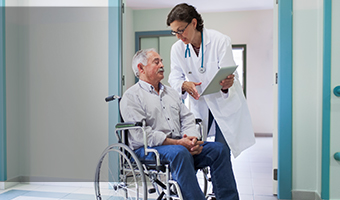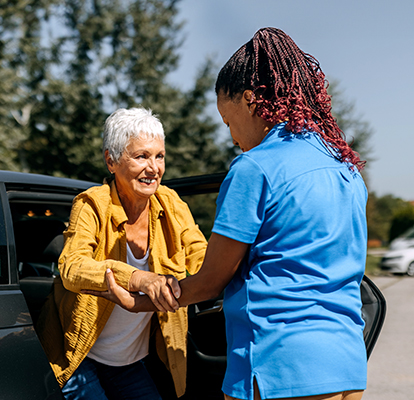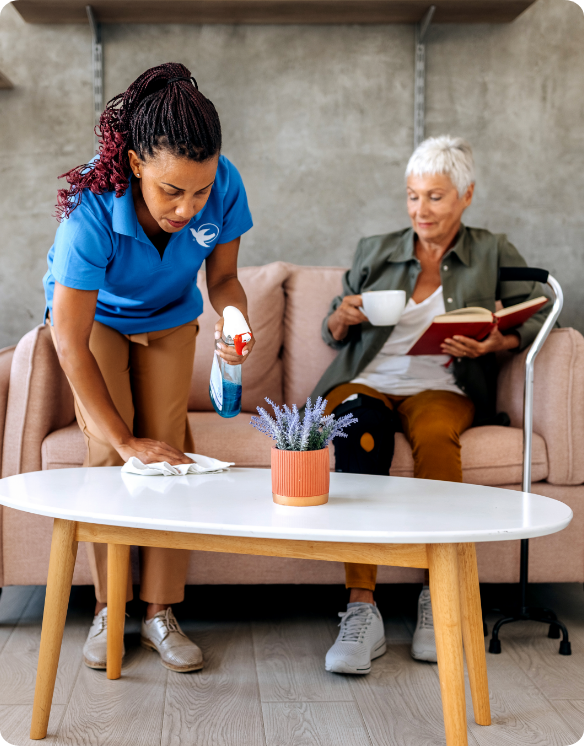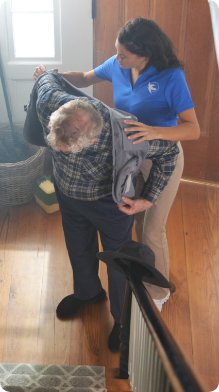




Unfortunately, readmission to the hospital—shortly after discharge—remains an unfortunate consequence for many seniors. Effective discharge planning and ongoing support at home are essential to reducing the likelihood of hospital readmission.
As your aging loved one attempts to transition to their home from the hospital, you might need a helping hand to manage discharge instructions and keep up with regular senior care duties.
Visiting Angels can help!

Visiting Angels created a “Ready, Set, Go Home” transitional program to provide non-medical home care support after your senior leaves the hospital or a rehabilitation facility.
Our professional caregivers can help reduce your loved one’s risk of readmission due to preventable mishaps at home—and give you peace of mind during their recovery.
Visiting Angels designed the “Ready, Set, Go Home” program to help seniors get the best outcomes after hospitalization by providing essential, non-medical personal care services:

Many seniors lose function after hospitalization, which impairs their independence and quality of life. They may feel overwhelmed and exhausted by daily tasks at home, especially if they have a chronic condition along with a serious health event or surgery.
Some seniors develop post-hospitalization syndrome, which can occur for several weeks after hospital discharge. Signs of post-hospitalization syndrome may include:
Seniors are vulnerable to infections, falls, or symptoms that can result in re-hospitalization or death. They may struggle to care for themselves, complete household tasks, manage their medications, attend medical appointments, or contact their medical team about symptoms.
Our “Ready, Set, Go Home” program prepares for your senior loved one’s successful transition home from a hospital or rehabilitation facility.
Our helpful program will also provide you with a checklist/guide where you can:
Families play a critical role in a loved one’s recovery by staying actively involved in their care and ensuring they have the necessary support at home. It’s important to communicate regularly with healthcare providers, attend follow-up appointments, and monitor any changes in their condition. Helping with household tasks can also make daily life easier during the recovery period.
For additional peace of mind, families can enlist the help of professional caregivers, like Visiting Angels, to provide daily assistance and supervision. We offer personalized care services to supplement family support, allowing seniors to recover safely while easing the burden on loved ones.
After returning home, a senior may struggle with daily activities. Signs include difficulty managing medications, changes in mobility, increased forgetfulness, poor personal hygiene, unintentional weight loss, or trouble keeping up with household tasks. If they seem fatigued, disoriented, or are at risk of falling, additional assistance can help ensure their safety and well-being.
Visiting Angels can visit your loved one in the hospital or rehab facility and create a plan before discharge. With input from you and the healthcare team, we can customize senior home care services to meet specific needs at home.
Contact a Visiting Angels office near you to learn more about the Ready, Set, Go Home program. Request a free home care consultation today.